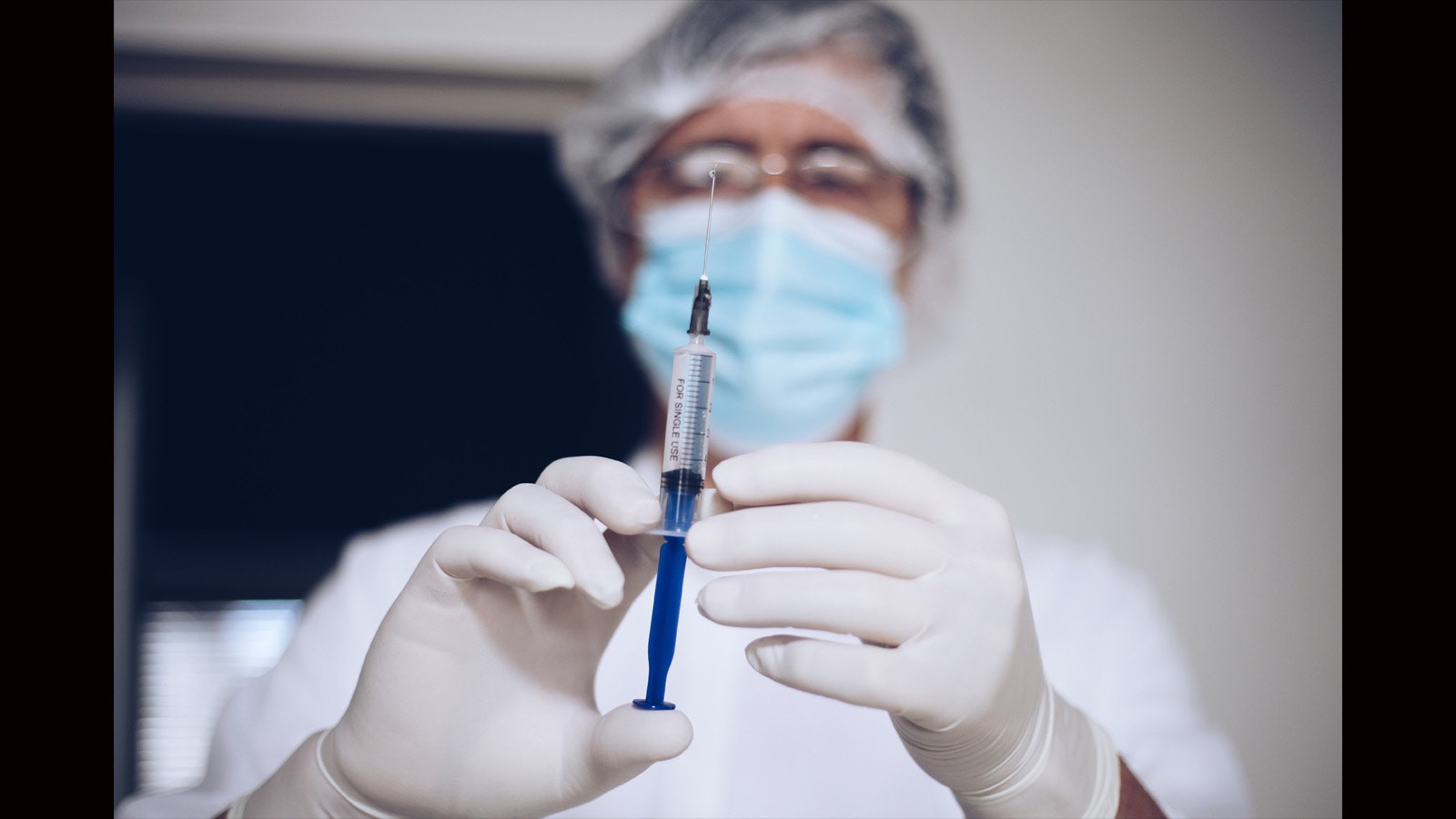By Wendy Corr, Cowboy State Daily
Public health officials in Wyoming say that mistrust of the government is a major reason why residents in Wyoming are among the most reluctant in the country to receive the COVID-19 vaccine.
A recent CDC report on what is known as “vaccine hesitancy,” listed all 23 Wyoming counties as among the top 1% in the nation where people are resisting getting the vaccine, with at least 29% expressing doubts about it.
The figures are not surprising, according to Bill Crampton, public health nursing supervisor for Park County.
“People aren’t trusting of the government, and this has been building for 60-plus years — so it’s not like it’s a surprise,” he said.
According to the latest national figures, Americans are getting vaccinated against the coronavirus at a rate of more than 3.3 million doses per day. And about 37% of the nation’s population — more than 123 million people — have received at least one dose of a COVID-19 vaccine.
But in Wyoming is running far behind the average and the CDC identified 11 counties — Campbell, Carbon, Converse, Crook, Goshen, Johnson, Natrona, Niobrara, Platte, Washakie and Weston counties — where more than 32% of the residents are believed to be hesitant about the inoculations.
In Park County, more than 25% of the residents have been vaccinated, but Crampton said some others remain hesitant for several reasons in addition to government mistrust.
“But you know, I’ve heard everything from, ‘I’m not getting it because everybody’s pushing it too hard,’ to ‘I’m not getting it because it hasn’t been out there long enough,’” he said.
Crampton also noted that many young people aren’t as interested in getting the vaccine — and additionally, the rapid rollout of the vaccine is a concern for Park County residents.
“Many of the questions that are being asked right now are questions that we would have answered with about 10 years worth of studies, and we’re still gathering information as we go along,” he said.
Crampton added the concern over health complications linked to the Johnson and Johnson single-dose vaccine hasn’t helped those who are already hesitant.
“That’s just added to the anxiety,” he explained, adding that the confusion at top levels of government also hampers the vaccination effort.
“Their messaging has been confusing – it’s been contradictory,” he said.
But he added it is human nature to look for conspiracies in the absence of solid information.
“There’s always somebody who comes up with some information later, and we find out we weren’t told the whole truth — various government agencies that have apparently been caught in lies, and it makes folks just go, ‘Why should I trust what you tell me?’” he said.
Kathy Emmons, executive director for the Laramie County Health Department in Cheyenne, said the department has seen an average of about 400 people per day in the vaccination clinics it has coordinated in the last couple of weeks.
In Laramie County, 52% of the seniors — those 65 and older — have taken the vaccine, but only 25% of all those 18 and over have been inoculated, Emmons said.
One of the reasons that people are hesitant to get the vaccine, according to some of the residents that Emmons has talked to, is because in Wyoming, the true impact of the virus hasn’t been felt.
“I was talking with one lady, and she was a little bit older, I would guess she was mid- to late 60s. And I asked her how she was doing and, and she said, ‘You know, I was really hesitant to get the vaccine,’” Emmons said. “She said, ‘I really didn’t know if the COVID virus was really that bad.’
“And I said, ‘Well, I just got off the phone with a 57-year-old gentleman who told me he had gotten the vaccine, because he also had COVID, and it was so bad, he never wanted to go through that again,’” Emmons continued. “And right before I talked to her, I also saw that we lost a person in Laramie County, the death of a 47 year old. And I told her that.”
Emmons said while she understands that not everyone gets extremely ill from the virus, the possibility exists — and even though public health officials continue to try to educate the public about the severity of the virus, that message needs to continue to be put out to the public.
“I think there’s still some misunderstanding, or lack of education, about the fact that this is a real thing,” she said. “So we think we’ve told the story 100 times, but I guess we need to tell it 101. I think another piece of the the puzzle that we’ve not really identified is that there’s still the misperception that if I have been sick with COVID, I don’t need the vaccination.”
But she pointed out that the antibodies left in the human system after someone has COVID are not going to stay there forever.
“So having that vaccine is just going to give you one more layer of protection, which again is really important for you for your family.”
Emmons asked people to think of more than their own health.
“We don’t want to have to go back to limiting businesses and things like that – the economic impact,” she said. “And one of the best ways to do that is to make sure everybody can go back to work and can go out and shop; and you can only do that if you’ve got that protection.”
And Crampton said he has faith that the vaccine works.
“We wouldn’t have it out there right now if it wasn’t safe and effective.”





